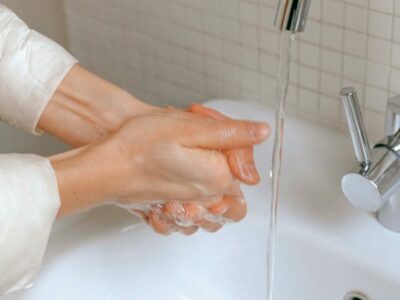 The CDC is reporting increased cases of norovirus in our area and across the country. Norovirus is highly contagious, and the symptoms include vomiting and diarrhea. “Other than making sure you are well hydrated, there is no other specific treatment for norovirus,” said Lakes Urgent Care medical director Dr. Haidar Al-Saadi. “We can’t give you a z pack and make you feel better if you have norovirus. That’s why prevention is by far your best approach to avoiding this nasty illness. And the number one thing you can do is wash your hands frequently and thoroughly.”
The CDC is reporting increased cases of norovirus in our area and across the country. Norovirus is highly contagious, and the symptoms include vomiting and diarrhea. “Other than making sure you are well hydrated, there is no other specific treatment for norovirus,” said Lakes Urgent Care medical director Dr. Haidar Al-Saadi. “We can’t give you a z pack and make you feel better if you have norovirus. That’s why prevention is by far your best approach to avoiding this nasty illness. And the number one thing you can do is wash your hands frequently and thoroughly.”
Proper hand washing involves soap, water and vigorous hand washing for at least twenty seconds. The friction of your hands rubbing together is an important part of keeping your hands clean. According to the CDC, “hand sanitizer does not work well against norovirus. You can use hand sanitizer in addition to hand washing, but hand sanitizer is not a substitute for handwashing, which is best.”
Always wash your hands after using the toilet, changing a diaper, or disposing of pet waste. Always wash your hands before eating, preparing, or handling food and before handling medicine.
Another important way to prevent the spread of norovirus is to use disinfectant wipes regularly in all the “high touch areas” of your home: door and drawer handles, light switches, and doorknobs.